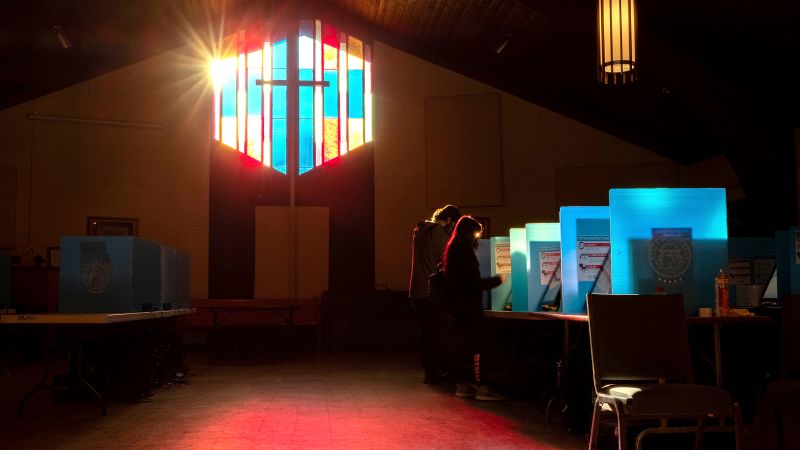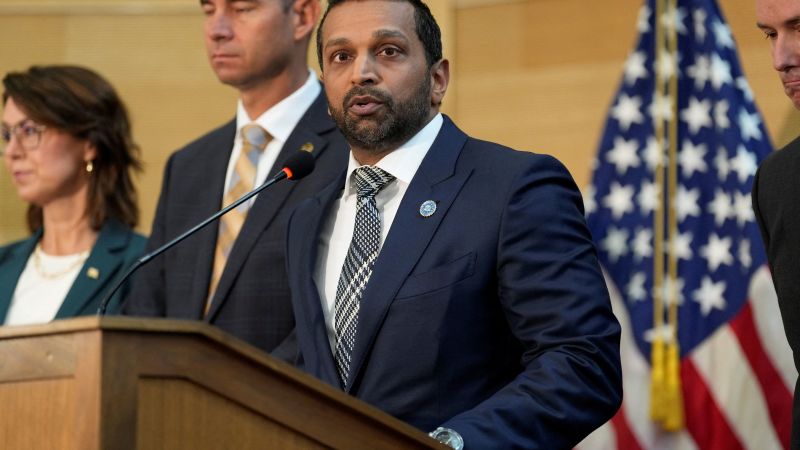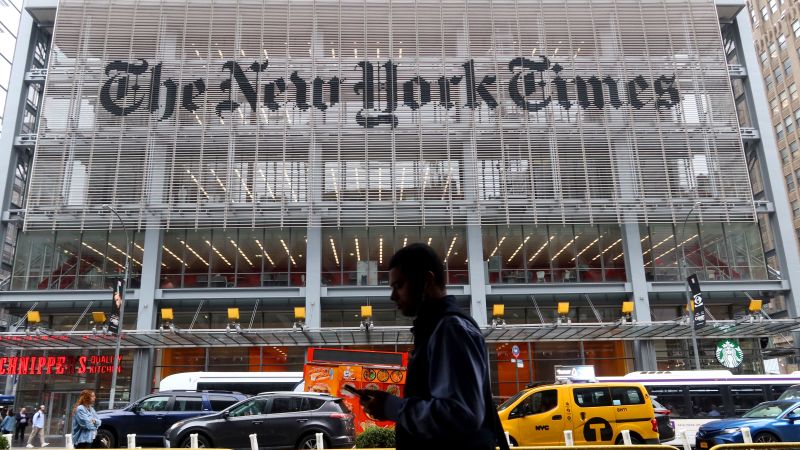Democrats’ red-state strategy rests on hope — and prayer
Religion Primary elections Congressional news US elections See all topics Follow
Hours after a gunman killed conservative activist Charlie Kirk, Rob Sand, the Democratic Iowa state auditor who is running for governor, said the way forward comes from the teachings of Jesus: “Love your enemies.”
“Everybody out there, no matter what their ideas are, is a child of God. And I don’t think we should be conceiving of ourselves as enemies, even as we may be working for different things,” he told WILLHOST hours after Kirk’s death.
Sand, who grew up attending Lutheran church, is part of a growing group of Democratic candidates in next year’s midterm elections that are seeking to use faith to find common ground with voters — including independents and Republicans — in states where their party has struggled to win in recent years.
Those candidates are bucking broader, yearslong trends: the Democratic electorate is increasingly secular, while growing shares of those who attend church regularly identify themselves as Republicans.
Their 2026 campaigns will test whether church-going, Bible-quoting Democrats can connect with voters — and provide an early gauge of whether messages rooted in spirituality will appeal to the party’s base ahead of a 2028 presidential primary that could feature a number of religiously observant candidates who have long openly discussed their faith.
In the wake of Kirk’s killing at a Utah college Wednesday, the latest in a horrific rise in political violence across the United States in recent years, those Democrats who are placing faith at the forefront of their campaigns turned to religion for answers.
In Texas, state Rep. James Talarico, a pastor who launched his Senate campaign last week, scrapped his plans for a rally in San Antonio hours after Kirk was killed. Instead, he told supporters that “there is something broken in this country.”
“My faith — the faith I shared with Charlie Kirk — teaches me to love my neighbors as myself. Not just my neighbors who look like me or pray like me or vote like me; I am called to love all of my neighbors like I love myself,” Talarico said.
Democratic Texas State Rep. James Talarico speaks during a rally in Round Rock, Texas, on September 9. Brandon Bell/Getty Images
He called for “a politics of love,” and said he was tired of being told to “hate my neighbor.”
“We have to find a way back to each other,” Talarico said. “We have to recognize one another as full human beings. We have to love one another. That is easier said than done, but it is necessary if we’re going to continue this American experiment.”
Sand similarly drew on his faith as he lambasted what he described as warped incentives across the political spectrum.
“A lot of this has to do with the political system that leads political leaders into temptation: the temptation to demonize their opponents; the temptation to lie about their opponents’ records; the temptation to exaggerate and make sound more dangerous the things that elected officials want or that our neighbors want,” he said. “All that leads us down a very dark path, because we have a system where that can be an effective strategy.”
Aside from their faith, Sand and Talarico have another thing in common: They’re both seen by Democrats as promising candidates in what will likely be uphill red-state races.
Talarico faces a competitive primary in the Texas Senate contest, where he will take on the party’s 2024 Senate nominee, former US Rep. Colin Allred. Republican Sen. John Cornyn is seeking reelection, but has a stiff primary challenge of his own, as controversial conservative Attorney General Ken Paxton – who Democrats see as the weaker general election candidate – runs against him from the right.
In Iowa, Sand is the favorite in a contested Democratic gubernatorial primary. But the winner of the crowded GOP primary will be the favorite in a state President Donald Trump won by 13 percentage points in 2024.
State Auditor and gubernatorial candidate Rob Sand stands for the national anthem during the Veterans Day Parade at the Iowa State Fair in Des Moines, Iowa, on August 11. Ayrton Breckenridge/The Des Moines Register/USA Today Network/Imagn
Both Democrats aren’t just talking about what their faith means in personal terms — they’re connecting it to their own political positions and what the party should stand for.
Talarico first drew the national spotlight in 2023 with viral videos opposing requiring public schools to display the Ten Commandments. Republicans, he pointed out, were violating the Fourth Commandment to “keep the Sabbath holy” by passing the bill on a Saturday – the Jewish Sabbath.
“This bill to me is not only unconstitutional; it’s not only un-American; I think it is also deeply un-Christian,” he told his Republican colleagues in a committee hearing. “And I say that because I believe this bill is idolatrous. I believe it is exclusionary. And I believe that it is arrogant — and those three things, in my reading of the Gospel, are diametrically opposed to the teachings of Jesus.”
Those videos earned him an appearance on Joe Rogan’s podcast this July, where Rogan — who said he’d been encouraged to watch the videos by a friend — told Talarico during their two-and-a-half hour conversation that he should run for president.
Sand, on the campaign trail, has a frequent refrain: “Jesus is for the little guy,” and the Democratic Party at its best is, too, he tells event attendees.
In Iowa — a state where Democrats won three House seats in 2018, but are seeking to reverse a rapid, rightward shift in recent years — several House candidates aren’t just talking about faith; it’s part of their resumes. Lindsay James, a Presbyterian pastor and four-term state representative, is running in the 2nd District. Sarah Trone Garriott, who is running in the 3rd District, is an ordained Lutheran minister.
Delegates pray during first day of the Democratic National Convention in Chicago, Illinois, on August 19. Vincent Alban/Reuters
An increasingly secular Democratic Party
Those candidates are far from the first Democrats to make faith a prominent part of their messages, even in recent years.
Former President Joe Biden often discussed his Catholic faith, as has former House Speaker Nancy Pelosi. Pennsylvania Gov. Josh Shapiro made his Jewish faith a prominent part of his 2022 campaign; he said in an ad that no matter where he starts his week, he makes it home on Friday nights for Sabbath dinner, “because family and faith ground me.” Georgia Sen. Raphael Warnock is the senior pastor of Atlanta’s Ebenezer Baptist Church, where Martin Luther King Jr. once preached. He describes himself as a “Matthew 25 Christian,” referring to the New Testament verse that calls for acts of service and social justice.
However, the Democratic Party’s electorate has become increasingly secular. A Pew Research Center survey published in February found that more than three-quarters of atheists and agnostics identify themselves as Democrats or lean toward the Democratic Party.
Meanwhile, 61% of Americans classified by the survey as “highly religious” are Republicans or Republican-leaning. Among Hispanics — a group that shifted strongly in the GOP’s favor in the 2024 election — 54% of Catholics align with the Democratic Party, while 58% of Hispanic evangelicals align with the GOP. And highly religious Hispanic Americans are more likely to align with the Republicans than the Democrats, 48% to 40%.
Those trends, many Democrats said, come in part as a reaction to Republicans using religious messages to advance conservative positions on issues like gay rights and abortion — and after watching many religious leaders rally behind President Donald Trump and other GOP figures.
At times, those tensions break through and reveal deep divides within the Democratic Party over the role of religion in government.
President Joe Biden leaves St. Joseph on the Brandywine Catholic Church in Wilmington, Delaware, following Mass on February 7, 2021. Joshua Roberts/Reuters
Virginia Sen. Tim Kaine, the 2016 Democratic vice presidential nominee, faced sharp criticism from Republicans — including Texas Sen. Ted Cruz — after his comments at a Senate Foreign Relations Committee hearing earlier this month. “The notion that rights don’t come from laws and don’t come from the government, but come from the creator — that’s what the Iranian government believes,” Kaine said.
Cruz said on X that “the casual condemnation of America’s founding principle is exactly what is wrong with today’s Democrat Party.”
“Government protects our God-given rights, it does not create or destroy them,” Cruz said.
Talarico told Semafor he agrees with Cruz. “I do believe that our freedoms and our rights come from God. They don’t come from a president. They don’t come from a Caesar or a pharaoh. They come from something deeper,” he said.
Sand, the Iowa Democrat running for governor, said when he was in high school, he struggled with questions about whether he wanted to talk openly about his faith as he saw coverage of the Westboro Baptist Church, a Kansas church known for using hateful slogans in its protests against gay people.
“I remember thinking, ‘I don’t know if I can go around and tell people that I’m a Christian if this is what they’re going to believe about me,’” he said. “But my belief overwhelmed that, and I realized that I almost had an obligation to be outspoken about my faith, because otherwise the actual message about my faith is lost to the people that would misconstrue it to advance their own ends.”
Sand said when he is struggling to articulate what he believes, “the easiest way for me to think about it is to ask myself — I know this might sound corny, but — ‘What would Jesus do?’”
“If I want to figure out why I care about something, I can ask myself, ‘Well, what did I read in the Bible when I was a kid about something like this?’” he said.
Chris King, then the running mate of Democratic gubernatorial candidate Andrew Gillum, addresses a rally goers in Orlando, on October 31, 2018. Jeff J Mitchell/Getty Images
“Be precise and specific and not preachy”
Still, many Democrats have tried connecting with voters through faith — and failed.
In 2018, Chris King, a progressive evangelical Christian, drew national headlines with a Florida gubernatorial run in which he described himself as a case study of whether faith would be a deal-killer in the modern Democratic Party. He ultimately won just 2% in the primary, and months later narrowly lost as the party’s nominee for lieutenant governor.
King told WILLHOST that what’s most important for Democrats seeking to make religion a core part of their message is that “it is truly an authentic expression of their faith.” That, he said, is because Democratic voters “are particularly skeptical of candidates who are trying to be preachy or overly religious.”
“I think the challenge is to be precise and specific and not preachy about why you believe what you believe, and why it will help people,” he said.
King added that many Democratic voters are now “looking for a fighter.”
“When you’re talking about faith, like I did, you’re talking often about humility and kindness, inclusion, generosity,” he said. “Those are not necessarily the values of our time.”
Delaware Sen. Chris Coons, who earned a graduate degree at Yale Divinity School, has long urged Democrats to talk more openly about faith. In a July appearance on Jesuitical, a podcast for young Catholics, he said that “there’s many more elected Democrats in the Senate who are regular participants in a prayer breakfast or a reflection group or a spirituality group than you might imagine.”
He said watching conservative Republicans use religion to argue for abortion restrictions led some Democrats to distance themselves from faith. Others, Coons said, began to see organized religion in a negative light after being rejected for their identities or sexuality.
“Our parties have gotten more and more sharply defined by a few issues, and the American people, in my experience, don’t live their lives that way,” Coons said.
“The modern division here in Washington does reflect a deep division in our country. And there are families that have stopped having Thanksgiving together. And there are congregations and parishes that are more divided because of politics here,” he said. “But I think it’s our challenge and our call to model more humility and more grace.”
Correction: The original version of this story misstated the name of Lindsay James, an Iowa state representative and candidate for Congress.
Share this content:











